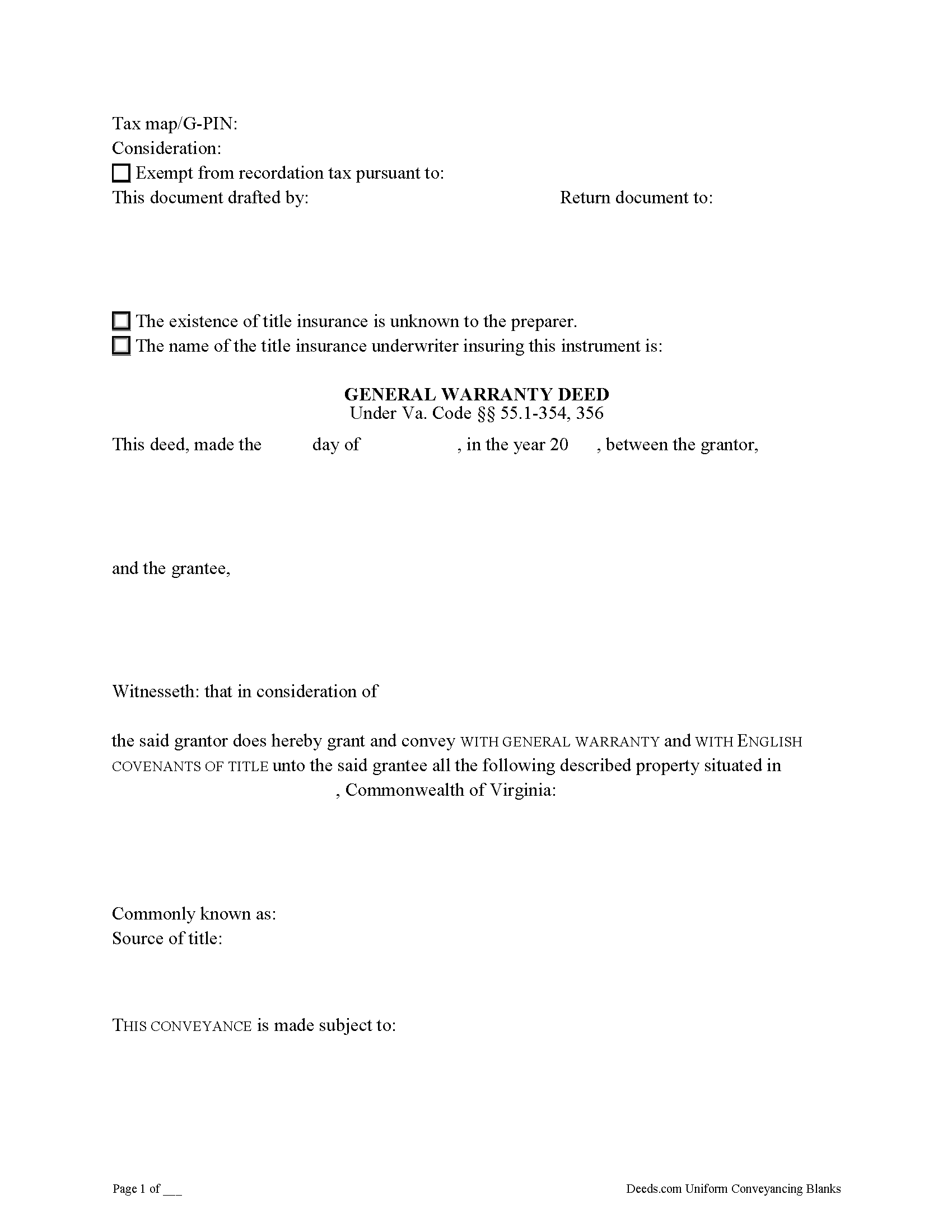Download Virginia Warranty Deed Legal Forms

Virginia Warranty Deed Overview

A warranty deed is commonly used to transfer title to real property in Virginia. The statutory form of a deed is presented in 55.1-300 of the Virginia Code and can be used for a warranty deed. Every deed conveying land in this state is construed to include all the estate, right, title, interest, both in law and in equity, of the grantor in or to such lands, unless a limitation is expressed in the deed (55.1-301). A deed for real property in this state will also include, unless an exception is made in the deed, all appurtenances, buildings, and privileges belonging to the land being conveyed (55.1-303). A covenant of general warranty is construed to be a covenant from the grantor that he will warrant and defend the property being conveyed to the grantee, his heirs, personal representatives, and assigns, against the claims and demands of all persons whomsoever (55.1-354). A general warranty deed customarily includes English covenants of title, which includes, according to statute, a covenant of right to convey, a covenant of quiet possession and freedom from encumbrances, a covenant of further assurances, and a covenant of no act to encumber, in addition to a covenant that the grantor is seized in fee simple of the property being conveyed. These covenants are set by statute and are implied through the use of the phrase "with English covenants of title" in a warranty deed
(55.1-356).
A warranty deed must contain the grantor's original signature, which should be acknowledged by him or proved by two witnesses. A certificate of acknowledgment should be attached to the deed submitted for recording (55.1-612). Notarial acts are permitted to be performed outside of Virginia for use in Virginia with the same effect as if performed by a notary public in this state. Out of state acknowledgments can be taken by any officer who is authorized to perform notarial acts in the place where the act is performed (55.1-616 et seq.). Acknowledgments taken outside of Virginia must conform to the rules as set forth in 55.1-617 of the Virginia Code. The official seal of the person performing the notarial act, whether or not it is in this state, should be affixed to the document (55.1-617).
A warranty deed or other deed conveying such estate or term, when the possession is allowed to stay with the grantor, will be void as to all purchasers for valuable consideration without notice who are not parties to the deed and to lien creditors until the deed or other instrument in writing is recorded in the county or city where the property is located (55.1-407). This is a race-notice recording act, which means that a later buyer who pays fair value and records a deed first without having notice of any earlier conflicting interests will have priority over later recordings pertaining to the same property or portion of it.